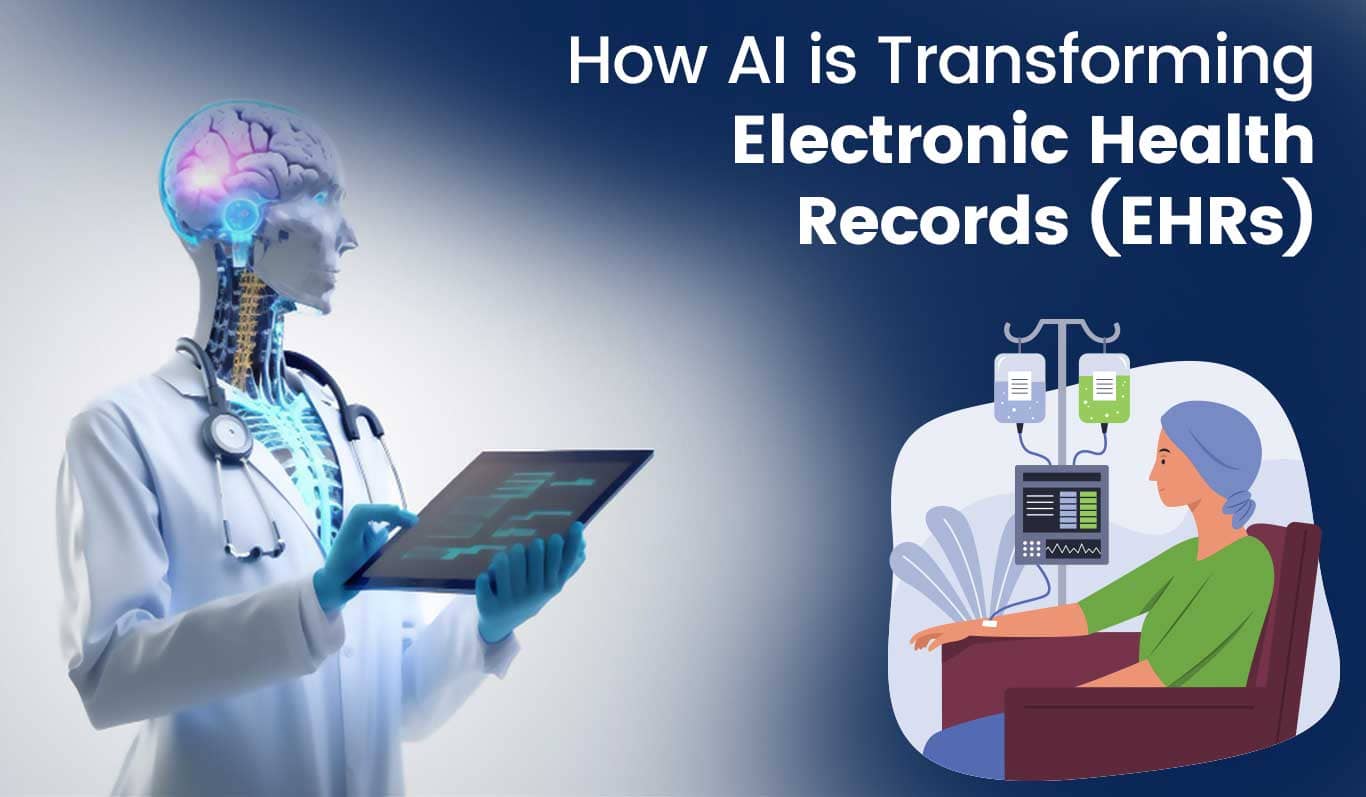Revolutionizing Health Records Management with AI: Ensuring Accuracy and Accessibility

Health records are the backbone of patient care, providing critical information that guides diagnosis, treatment, and follow-up. However, managing these records efficiently is a challenge for many healthcare institutions. Inaccuracies, missing data, and accessibility issues can lead to suboptimal patient care and increased administrative burdens. AI can transform health records management by ensuring accuracy, enhancing accessibility, and improving overall healthcare delivery.
Managing health records involves several challenges that can impact the quality of care:
Data Inaccuracies: Manual data entry and transcription errors can lead to inaccuracies in patient records.
Incomplete Records: Missing information can hinder effective diagnosis and treatment planning.
Accessibility Issues: Difficulties in accessing patient records in real-time can delay care and increase administrative workload.
Interoperability: Incompatible systems can prevent seamless sharing of patient information across different healthcare providers.
Data Security: Ensuring the privacy and security of patient records is a critical concern.
AI technologies offer powerful solutions to address these challenges, revolutionizing health records management in various ways:
Automated Data Entry and Transcription:
Speech Recognition: AI-powered speech recognition can convert spoken language into text, reducing manual data entry errors.
Optical Character Recognition (OCR): AI can digitize handwritten and printed documents, ensuring that all patient information is accurately captured.
Data Validation and Error Detection:
Anomaly Detection: AI can identify inconsistencies and errors in health records, prompting corrections before they impact patient care.
Data Standardization: AI can standardize data formats, making it easier to integrate and analyze information from different sources.
Real-Time Accessibility:
Cloud-Based Systems: AI-powered cloud systems can store and manage health records, providing real-time access to authorized users.
Patient Portals: AI can enhance patient portals, allowing patients to access their health records, test results, and treatment plans from anywhere.
Interoperability Solutions:
Data Integration: AI can facilitate seamless data exchange between different healthcare systems, ensuring that patient information is readily available across providers.
API Development: AI can help develop APIs that enable interoperability between disparate systems, enhancing coordination of care.
Enhanced Data Security:
Encryption and Blockchain: AI can enhance data security by implementing advanced encryption methods and blockchain technology to protect patient information.
Access Control: AI can manage access control, ensuring that only authorized personnel can view or modify health records.
Several healthcare institutions have successfully implemented AI-driven health records management systems, demonstrating significant improvements in accuracy and accessibility:
Challenge: Data inaccuracies and accessibility issues in patient records.
Solution: Implemented an AI-powered health records management system with automated data entry and real-time accessibility features.
Result: Improved accuracy of patient records by 30% and enhanced accessibility for healthcare providers.
Challenge: Incomplete records and interoperability issues.
Solution: Deployed an AI-driven data validation and integration system.
Result: Reduced missing information in patient records by 25% and improved data sharing across departments.
Challenge: High administrative workload and data security concerns.
Solution: Adopted an AI-based cloud system with enhanced security features.
Result: Reduced administrative workload by 20% and enhanced data security, ensuring patient privacy.
The integration of AI in health records management is just beginning, and the future holds even more transformative potential:
Predictive Analytics:
Personalized Care: AI can analyze patient data to predict health trends and tailor personalized treatment plans.
Preventive Care: AI can identify risk factors and suggest preventive measures to improve patient outcomes.
AI-Driven EHR Systems:
Smart Documentation: AI can automate the documentation process, reducing the administrative burden on healthcare providers.
Clinical Decision Support: AI can provide real-time clinical decision support, helping providers make informed treatment decisions.
Blockchain Integration:
Immutable Records: Integrating AI with blockchain technology can create immutable health records, ensuring data integrity and trust.
Secure Data Exchange: Blockchain can facilitate secure and transparent data exchange between healthcare providers.
AI-Powered Patient Engagement:
Virtual Assistants: AI-powered virtual assistants can help patients manage their health records, book appointments, and access medical advice.
Personal Health Dashboards: AI can create personalized health dashboards that provide patients with a comprehensive view of their health data.
AI has the potential to revolutionize health records management by addressing key challenges and enhancing the accuracy and accessibility of patient information. By leveraging AI-driven automated data entry, data validation, real-time accessibility, interoperability solutions, and enhanced data security, healthcare institutions can achieve significant improvements in patient care and operational efficiency. As AI technologies continue to evolve, health records management will become more accurate, efficient, and secure, ultimately benefiting both healthcare providers and patients.
At AiDOOS, we specialize in connecting healthcare institutions with AI experts to implement cutting-edge solutions. If you're interested in exploring how AI can transform your health records management, we would be delighted to provide a quick demo.
Ready to revolutionize your health records management with AI?
Contact Us today to schedule a demo and discover how our AI solutions can enhance the accuracy and accessibility of your patient records.

For modern telecom enterprises, delivering exceptional QoS is no longer optional—it’s a brand differentiator and a strategic lever for growth. Static provisioning models won’t cut it in a world of hyper-dynamic data usage.